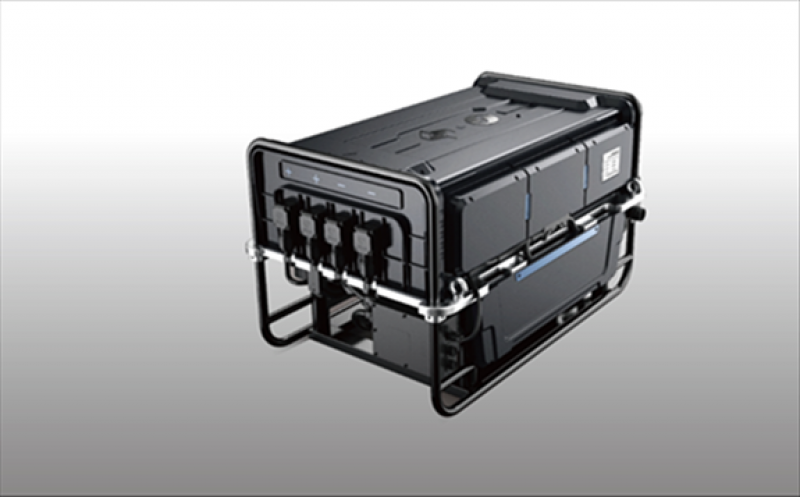A hydrogen fuel cell produced by Beijing SinoHytec.

This week, Toyota Motor Corporation and Beijing SinoHytec, a Chinese company that develops hydrogen fuel cell engines, announced a new joint venture to produce hydrogen fuel cell vehicles for the Chinese market.
According to a joint statement (in Chinese), the two companies will invest a total of $72 million into Huafeng Fuel Cell Co. Ltd.
Huafeng is slated to begin production in 2023. The company’s first car will be modeled after Toyota’s hydrogen fuel cell vehicle MIRAI.
Toyota has charged forward in developing hydrogen-fuel-powered vehicles, unlike the automakers Honda, GM, and Volkswagen.
Last summer, Toyota established United Fuel Cell System R&D (Beijing) with Beijing SinoHytec, FAW, Dongfeng Motor, Guangzhou Automobile Group, and Beijing Automotive Group to develop fuel cells for commercial vehicles. This week’s announcement is about a new, separate company.
As a sponsor of the 2022 Beijing Winter Olympic Games, Toyota debuted a model of a hydrogen bus to be used for transporting athletes and spectators.
Hydrogen is a clean-energy fuel that can be produced from natural gas, nuclear power, or renewable energy sources. Its only byproduct is water. The fuel cells also promise to give a longer driving range than conventional electric vehicles (EVs).
Many countries, including China, are investing in hydrogen fuel tech.
Sinopec, one of China’s largest energy providers, said it will build 100 hydrogen refueling stations in 2021 in accordance with its goals to go carbon-neutral by 2050.
The U.S. Department of Energy is aiming to spend up to $100 million on the research and development of hydrogen and other fuel cells.
In 2020, the European Union promised to invest $430 billion in green hydrogen energy by 2030.
Not everyone believes hydrogen is the car fuel of the future. Elon Musk has called hydrogen cars “mind-bogglingly stupid” and taunted the tech on social media: “fuel cells = fool sells,” he tweeted last year. Experts point out that hydrogen is expensive and difficult to manufacture and transport.
But China is encouraging adoption of the technology.
This week, Dongfeng Electric, the EV arm of state-owned auto giant Dongfeng Motor Corporation, launched a fleet of 40 new hydrogen-powered buses (in Chinese) to be used for the 2021 Summer World University Games in Chengdu.
On Tuesday in Dalian, the city’s transportation company launched a fleet of 10 new hydrogen commuter buses.
Yesterday, Great Wall Motor, China’s largest sports utility vehicle manufacturer, announced plans to launch a hydrogen SUV later this year.
This article is reproduced at www.supchina.com